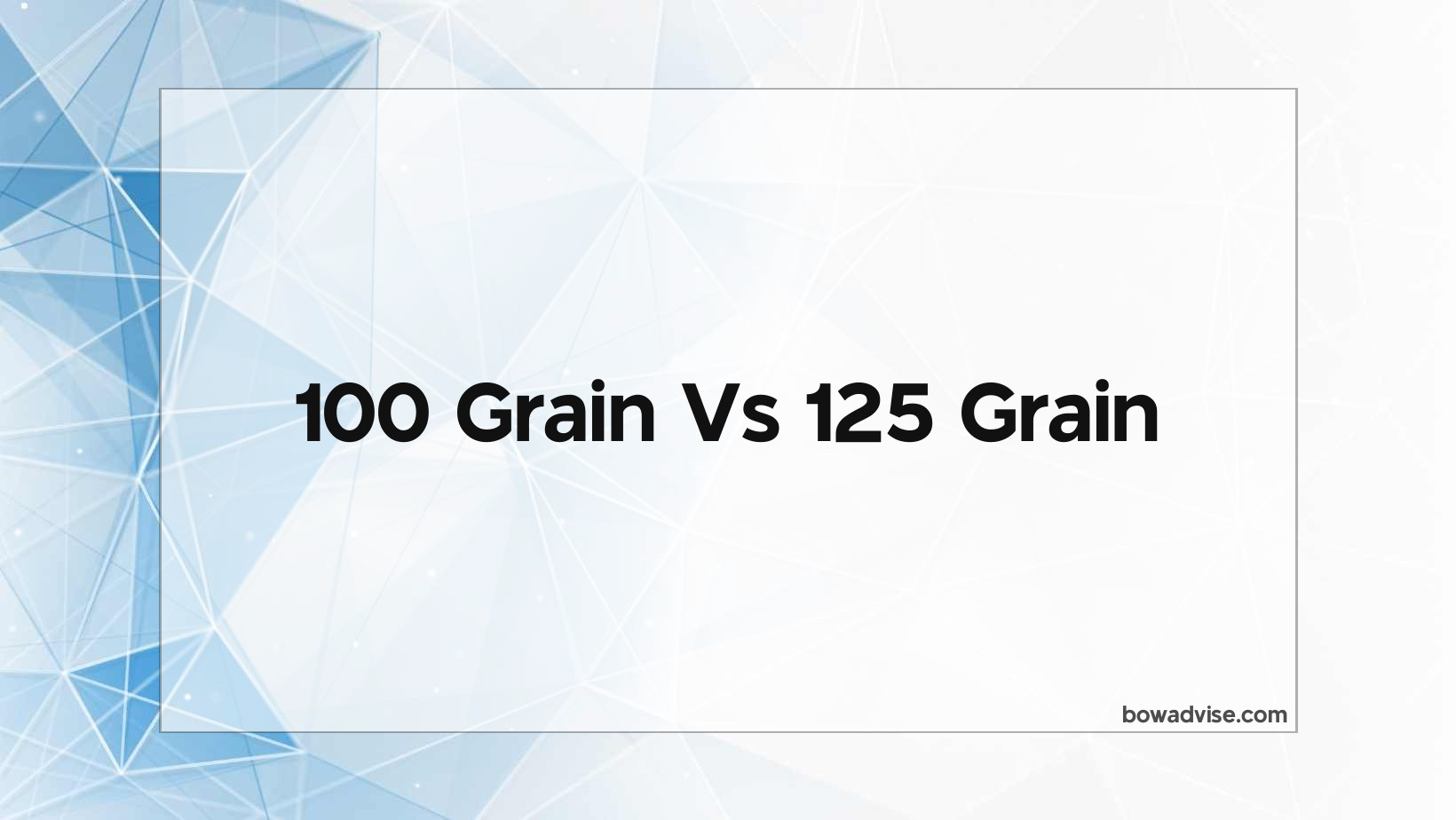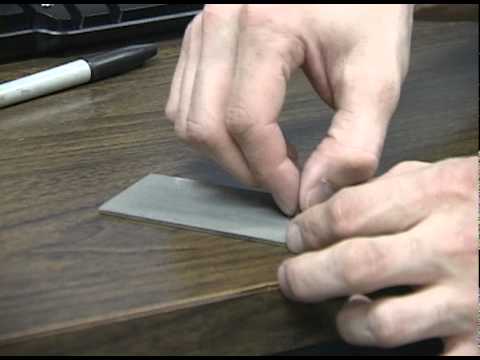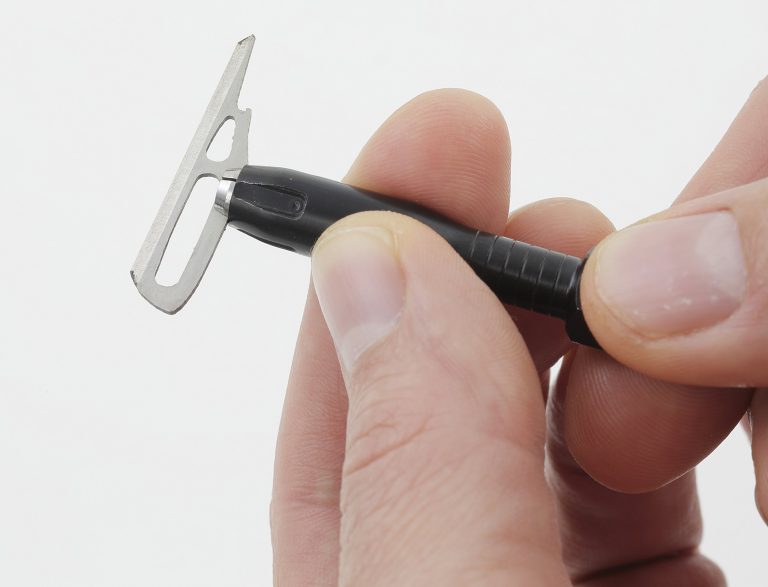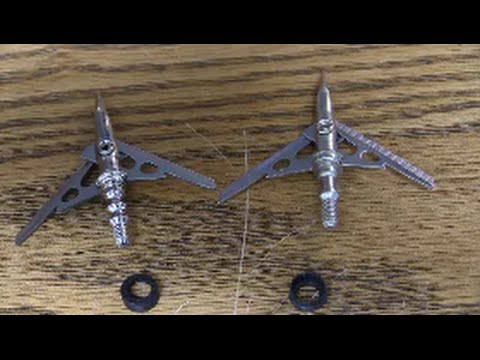100 Grain Vs 125 Grain
Introduction:
In terms of ammunition, the difference between 100 grain and 125 grain is the weight of the bullet. The 100 grain bullet is the lighter of the two options, while the 125 grain bullet is the heavier option. The weight of the bullet will impact the velocity and energy of the bullet. The heavier 125 grain bullet will have more velocity and energy than the lighter 100 grain bullet.
Differences Between: 100 grain vs 125 grain
1. 125 grain bullets are heavier than 100 grain bullets. This means that they have more mass and will therefore retain more energy as they travel through the air. This makes them better for long range shooting and hunting.
2. 125 grain bullets have a higher ballistic coefficient than 100 grain bullets. This means that they are more aerodynamic and will experience less drag as they travel through the air. This makes them better for long range shooting.
3. 125 grain bullets have a higher sectional density than 100 grain bullets. This means that they have a higher ratio of mass to cross-sectional area. This makes them better for penetration, making them better for hunting.
4. 125 grain bullets have a higher melting point than 100 grain bullets. This means that they will withstand the heat of firing better and will not deform as easily. This makes them better for accuracy.
5. 125 grain bullets have a higher hardness than 100 grain bullets. This means that they will maintain their shape better upon impact and will not deform as easily. This makes them better for penetration and accuracy.
6. 125 grain bullets have a higher copper content than 100 grain bullets. This means that they will expand more upon impact and create a larger wound channel. This makes them better for hunting.
7. 125 grain bullets have a higher lead content than 100 grain bullets. This means that they will have a softer core and will expand more upon impact. This makes them better
In-depth Review of 100 grain
1. 100 grain bullets are typically lighter than 125 grain bullets, so they may have slightly less energy when they impact the target.
2. 100 grain bullets typically have a higher velocity than 125 grain bullets, so they may penetrate the target more deeply.
3. 100 grain bullets may be less likely to fragment than 125 grain bullets, so they may retain more energy and cause more damage to the target.
4. 100 grain bullets may be more likely to expand than 125 grain bullets, so they may create a larger wound channel.
5. 100 grain bullets typically have a shorter length than 125 grain bullets, so they may be less stable in flight and more likely to wobble or tumble.
6. 100 grain bullets may be more likely to deform than 125 grain bullets, so they may not penetrate as deeply.
7. 100 grain bullets typically have a lower ballistic coefficient than 125 grain bullets, so they may be less accurate at long range.
8. 100 grain bullets may be more likely to disintegrate than 125 grain bullets, so they may not penetrate as deeply.
9. 100 grain bullets typically have a higher sectional density than 125 grain bullets, so they may be more resistant to deflection.
10. 100 grain bullets may be more likely to ricochet than 125 grain bullets, so they may be more dangerous to bystanders.
125 grain – Its Pros and Cons
1. 125 grain bullets may offer better penetration than lighter bullets.
2. 125 grain bullets may offer better expansion than lighter bullets.
3. 125 grain bullets may result in less recoil than lighter bullets.
4. 125 grain bullets may offer better long-range accuracy than lighter bullets.
5. 125 grain bullets may not offer as much velocity as lighter bullets.
6. 125 grain bullets may not expand as much as lighter bullets.
7. 125 grain bullets may not penetrate as deeply as lighter bullets.
8. 125 grain bullets may produce more recoil than lighter bullets.
9. 125 grain bullets may be less accurate than lighter bullets at long range.
10. 125 grain bullets may not be as widely available as lighter bullets.
Conclusion
There is no definitive answer when it comes to choosing between 100 grain and 125 grain bullets. Ultimately, it comes down to personal preference and what works best for your individual firearm and shooting style. Some shooters find that 100 grain bullets offer better accuracy, while others prefer the added stopping power of 125 grain bullets. Ultimately, it is up to the shooter to decide which is best for their needs.
Hopefully, you now understand the difference between 100 grain and 125 grain pellets. If you still have any questions, please feel free to leave a comment below.







